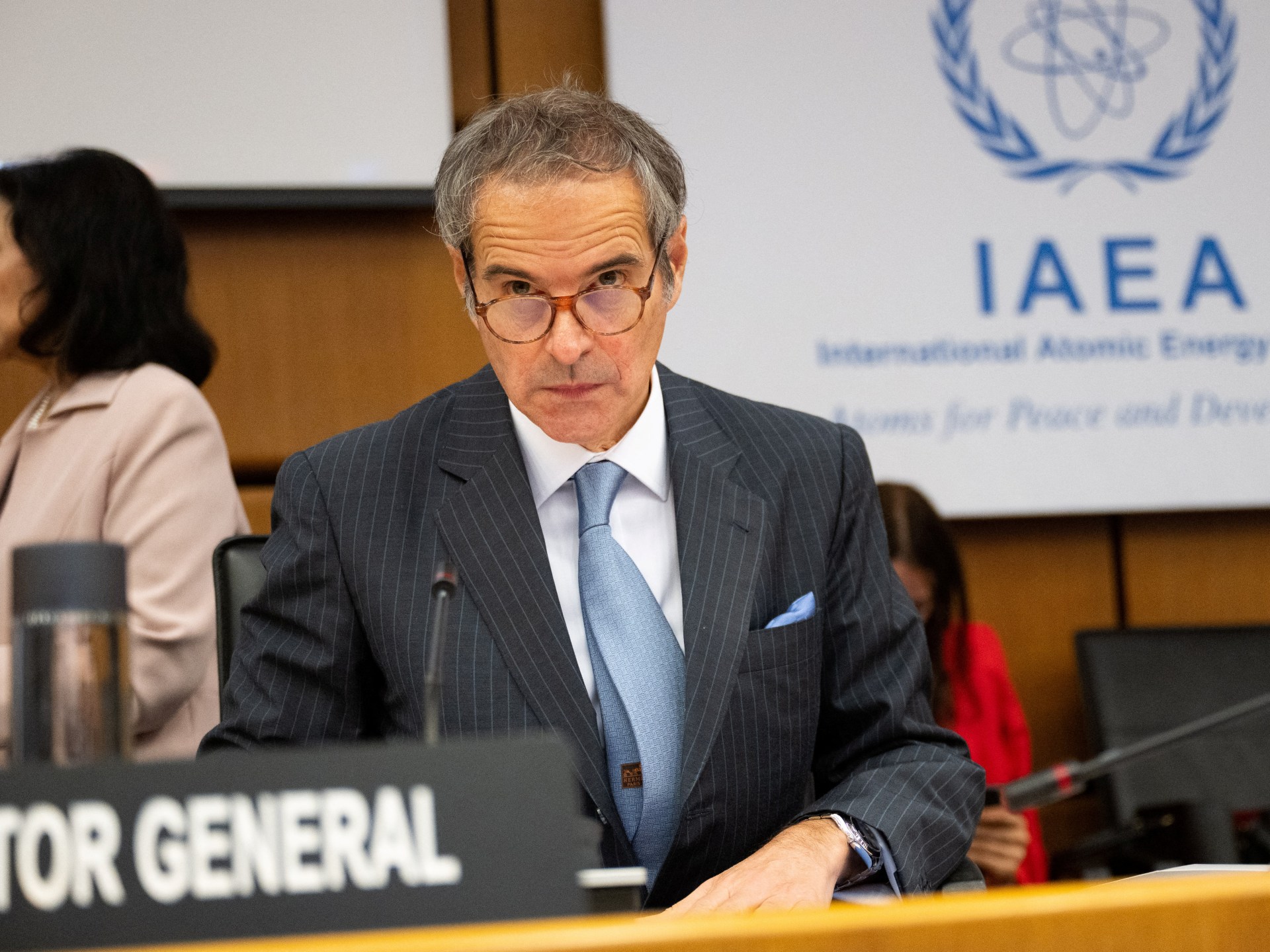According to the UN nuclear chief, Iran’s nuclear facilities have suffered significant damage as a result of Israeli and American military attacks.
Fordow, the heartbeat of Iran’s nuclear enrichment program, was revealed on Monday at a UN emergency board meeting where UN nuclear watchdog Rafael Grossi claimed craters from ground-penetrating US bombs could be seen.
Israel claimed that Tehran was close to developing nuclear weapons when it launched the attacks on Iran on June 13.
Iran’s three key nuclear facilities, Fordow, Natanz, and Isfahan, were immediately struck by the US, making the same claim as it did when it first entered the conflict on Saturday. Donald Trump, the president of the United States, claimed the strikes had “obliterated” the three sites.
No one, not even the IAEA, has yet to fully assess the extent of the underground damage at Fordow, according to Grossi, adding that it is anticipated to be “very significant”.
Grossi explained that centrifuges have an extremely vibration-sensitive nature and the explosive payload that was used.
The Natanz and Isfahan facilities, according to the IAEA chief, were also damaged and bombed by US cruise missiles and Tomahawk cruise missiles.
He claimed that the US struck a fuel-richement plant in Natanz. In addition to the “related to the uranium conversion process,” it also hit the entrances to tunnels used to store enriched material in Isfahan.
On Monday, the Israeli military continued its daytime bombings of Iran, with numerous explosion reports in Tehran and other locations. Another attack on Fordow was also reported by Iranian and Israeli officials.
Iran has continued to launch missile attacks and drone strikes at Israel, and it has pledged to retaliate against the US.
Legislators have supported efforts to suspend cooperation with the IAEA, and Tehran has also threatened to leave the Nuclear Non-Proliferation Treaty (NPT).
Iran has claimed that Grossi and the IAEA were behind the conflict, claiming that Israel used its biased reporting on Iran’s nuclear activities as a “pretext” for its attack.
Grossi once more stressed that “armed attacks on nuclear facilities should never occur,” but he did not directly condemn Israel or the US for the attacks at the IAEA board meeting.
He urged Iran and the US to resume the string of negotiations that were postponed by the Israeli strikes, warning that “violence and destruction could reach unimaginable levels” if the conflict continued.
He once more demanded that IAEA inspectors be permitted to examine the nuclear facilities’ damage. No radiation rise has been reported to date.
“I’m prepared to visit Iran right away. Despite the differences that are already present, we must continue to collaborate,” Grossi said.
The watchdog chief’s visit would be invited, but Iranian authorities have not made that clear.
Iranians’ short-term nuclear enrichment capacity has been damaged or destroyed, but there is still about 9, 000 kg (19, 800 pounds) of enriched uranium at levels of 2 to 60%, according to an ex-IAEA official, Tariq Rauf, who told Al Jazeera.
Source: Aljazeera

Leave a Reply